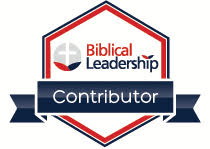We Are The Church
Ephesians 2:20-22 – Built on the foundation of the apostles and prophets, Christ Jesus himself being the cornerstone, in whom the whole structure, being joined together, grows into a holy temple in the Lord. In him you also are being built together into a dwelling place for God by the Spirit.
On Resurrection Sunday I didn’t go to my home church for service. Last year my mom passed away on Easter Sunday and this year Easter just happened to fall on her birthday. I went up to my dad’s alone and we went to his church and then went through the box of memories we had of my mom.
My dad’s church is nothing like my home church.
My home church is your typical modern non-denominational, evangelical/charismatic, thousand-person church. My dad’s church is a small Methodist church that typically has less than 25 people at it.
My home church has an amazing worship team. My dad’s church has an organist who misses a lot of notes.
My home church has 6 pastors, 7 elders, about 50 trustees, and several other people who help with the service. My dad’s church has a part-time pastor that goes to preach at another church and then comes to my dad’s church to preach.
My home church has a weekly monetary need of $33,000 to meet all of the financial needs of both the church and the missions that we support. My dad’s church has raised just shy of $11,000 in the first 3 months of this year.
My home church is continually bringing in a younger and younger crowd (and not at the detriment of the older crowd either). My dad’s church had an average age of 60+.
It was a little bit of a culture shock going to church with dad today, but not completely as I grew up in that kind of church environment.
But let me tell you something, my dad’s church has a lot of positives that my home church just doesn’t.
Hebrews 10:24-25 – And let us consider how to stir up one another to love and good works, not neglecting to meet together, as is the habit of some, but encouraging one another, and all the more as you see the Day drawing near.
First, for the Sunday service, almost all of the 20-something people who attend the church are helping out in the service in some way. That is almost a 100% participation!!! My home church struggles in this area.
Next, the discipleship of people is very strong. Over a quarter of the people at my dad’s church is going through discipleship classes regularly and each of them are connected with each other and spend time with each other outside of church living life together. While they aren’t taking official classes, they are pouring into each other daily just by spending their lives intertwined.
Finally, my dad’s church had the entire congregation making a joyful noise to the Lord during the hymns. My home congregation falls short here. Yes, the first 6 rows at my home church sing out loud, but I typically sit in the back. As I look around at people the larger majority are not singing the songs. Don’t get me wrong, they like the music a lot (and so do I). But they don’t have a personal connection with the music like the old hymns did on the older generation.
After the service, the pastor of my dad’s church asked me if I would come up and give the message one weekend. In the short few moments it took me to respond, I did think about the differences between my dad’s church and my home church. But I answered with an emphatic “yes.”
I’ve thought a lot about being a pastor. I’ve been trying to apply for several pastor positions but since I don’t have the experience level or the ordination, I’ve been rejected by almost all the places I’ve applied.
And could I ever lead a United Methodist Church?
Romans 12:5 – So we, though many, are one body in Christ, and individually members one of another.
Their theological differences are so far away from my home church’s views. I’ve talked to my wife about the possibility of being a UMC pastor. Or another legacy denomination. And we’ve both agreed that it would be a struggle not just for me but my wife and family to go into an environment that would be so far removed from where we are now. What would the kids be taught in youth group of Sunday School? What would the overarching theology be from the pulpit or from the denomination?
And if we look at the first century church as our example, they were completely unified and are the perfect example for us to follow.
Or were they?
All the members worked together in peace and harmony, right?
Nope.
The New Testament chronicles several dissentions and problems in the first century church. As a matter of fact, the book of James was written to help bring unity among the churches. The early church was suffering from false teachers, partiality toward those who had money, gossip, and general misunderstandings regarding faith and its application.
That’s not very different from today? What are today’s litmus tests? False teachers (especially those who preach about homosexuality and gender issues). Partiality toward those who have money (or who claim to be conservative, right-wing politically). General misunderstandings regarding the faith (which version of the Bible to use, how to translate the end-times prophecies, and general church polity being used as a condition of faith).
Ephesians 2:19-22 – So then you are no longer strangers and aliens, but you are fellow citizens with the saints and members of the household of God, built on the foundation of the apostles and prophets, Christ Jesus himself being the cornerstone, in whom the whole structure, being joined together, grows into a holy temple in the Lord. In him you also are being built together into a dwelling place for God by the Spirit.
I am not going to say that I am becoming more liberal in my beliefs. Paul was never wishy washy about where he stood. I still hold my same beliefs that I ever have in believing that the Bible calls homosexuality and abortion sin. But I also need to line that up with the Bible’s call for unity, even in a church that was as corrupt as the Corinthian church where Paul STILL called them saints!
I know many groups, both liberal and conservative, have worked together to build bridges between those who call themselves Christian. Ecumenical groups abound in this day and age. Some are worthy, others I call into question. I am a member of the Manhattan Declaration, for example. I signed it. It is an ecumenical declaration between Evangelical, orthodox, Catholic, and even some legacy denominations. It believes that every life has dignity, that marriage is between one man and one woman, and religious liberty is a right of all human beings. It is clearly made up of groups of people in which I disagree with their theological beliefs.
But we have unified to get an important message out that strikes at the core of the gospel message, that we are all created in God’s image.
So just how can groups that varied theological beliefs come together?
I don’t completely have that answer.
I know the answer is held somewhere in the gospel message. That is one thing that all foundational Christian denominations believe, that God formed us in His image, that we fell through sin, that we are in need of a Savior, that Jesus Christ is that Savior, and that Jesus died and rose again and will one day come again to save His church.
The answer is in there.
Acts 28:31 – Proclaiming the kingdom of God and teaching about the Lord Jesus Christ with all boldness and without hindrance.
But where?
Can it be enough that Christians come together to spread the gospel message? Can that be enough?
The disciples, once Jesus was taken up in the cloud from them, ran beck to Jerusalem and spread the message about the Kingdom of God. Paul, Peter, Phillip and especially Jesus all preached and teached the Kingdom.
The problem today is not a church that believes one theology over another.
The problem today is that the church doesn’t even know what the Kingdom of God is!
If we could unify under that alone we would be a much stronger church! We wouldn’t focus on what makes us different but what makes us the same! We wouldn’t have time to fight among each other over scraps but we would be out there on the front lines taking entire cities in the name of Christ and fighting against the real enemy, Satan.
So let’s learn about the Kingdom of God. Let’s try to understand its implication on our lives and how we should live and act as a Christian people.
Then….
Let’s get out there and help the world to seek FIRST the Kingdom of God.
Matthew 6:33 – But seek first the kingdom of God and his righteousness, and all these things will be added to you.


